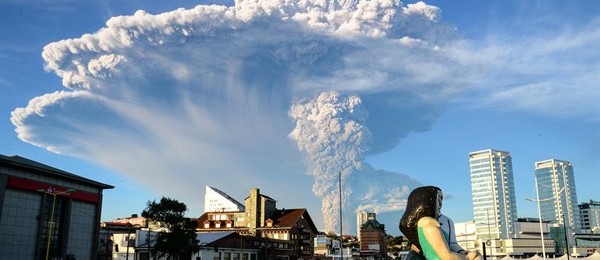Climate summaries
-

The preliminary statistics for April are coming in and show that most of the Southeast was much warmer than usual. The HPRCC climate maps from the High Plains Regional Climate Center below show that most of the area had temperatures of 2-4 degrees above average in the Carolinas , 4-6 degrees above average in Georgia…
-

There have been some spectacular videos and photos of the latest volcanic eruption to occur: Calbuco in southern Chile. Climatologists have been watching the eruption closely to see what climate impacts, if any, will occur due to the eruption. Big volcanic eruptions are known to shoot sulfuric acid high into the atmosphere where it forms…
-

We’re halfway through April and I thought it might be interesting to look at how the climate is doing so far this month. The maps below from the High Plains Regional Climate Center show the month to date departures from normal for temperature and precipitation. The maps clearly show that so far April is running…
Posted in: Climate summaries -

One of the consequences of the continuing drought in California has been the unprecedented string of extremely high temperatures that have occurred in the last few years. Normally a portion of the sun’s energy that hits the earth goes to evaporating water from the surface, either from soils or water bodies or indirectly through evapotranspiration…
-

NOAA has released their climate summary for the US for March 2015. The maps below show that while the west continued its record-setting warm conditions, the eastern US was split between areas that were slightly above normal (including the Southeast) where it was dry and below normal temperatures where it was wet. March was the…
Posted in: Climate summaries -

The Southeast Regional Climate Center has a useful display tool for showing the rankings of observed temperature values at NWS stations around the Southeast. Today a number of stations in the region set record high temperatures and a few more set record high minimum temperatures. The tool also allows you to look two days ahead…
-

March 2015 was warmer and drier than normal for most of Georgia. While the warmth helped encourage rapid growth of planted corn and other crops, cold conditions late in the month may have caused some damage to fruit blossoms. The warm and dry conditions also increased soil moisture shortages across the region. In Atlanta, the…
Posted in: Climate summaries